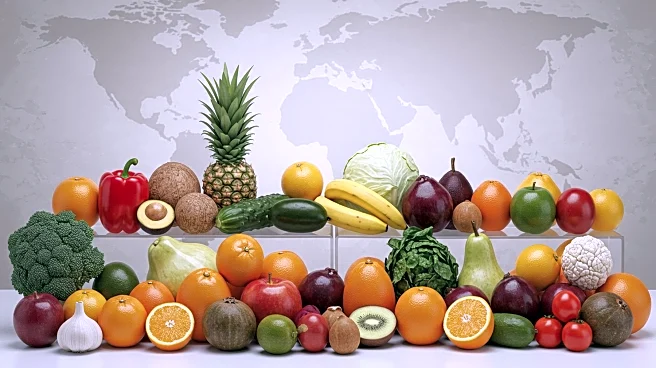What's Happening?
The World Trade Organization (WTO) is actively involved in managing the effects of US tariffs on agricultural products, which are set to increase in 2025. These tariffs, affecting commodities such as soybeans, corn, wheat, dairy, and pork, are expected to alter export volumes and trade relationships with key partners like China, Mexico, and the EU. The tariffs aim to protect domestic farmers by raising the price of imported goods, thereby supporting local production and stabilizing prices. However, they also pose challenges, such as higher input costs for farmers and potential retaliatory measures from trading partners.
Why It's Important?
The increase in tariffs has significant implications for the US agricultural sector and global trade dynamics. While tariffs can protect domestic industries, they may also lead to higher production costs and reduced competitiveness for US farmers. Retaliatory tariffs from other countries could further impact export volumes, affecting the US economy and global food supply chains. The situation underscores the need for strategic trade negotiations and policy adjustments to balance protectionism with open trade commitments.
What's Next?
Countries may pursue 'mini-lateral' agreements to stabilize markets affected by tariff changes. The WTO will continue to play a role in balancing protective tariffs with commitments to open trade. Stakeholders must navigate these changes to ensure sustainable development and mitigate risks associated with market volatility and political shifts.
Beyond the Headlines
The tariffs highlight broader geopolitical tensions and the role of trade policy in international relations. They also raise questions about sustainability and compliance, as tariffs increasingly tie to environmental and labor standards. The situation calls for innovative solutions to enhance resilience in supply chains and support sustainable agricultural practices.








